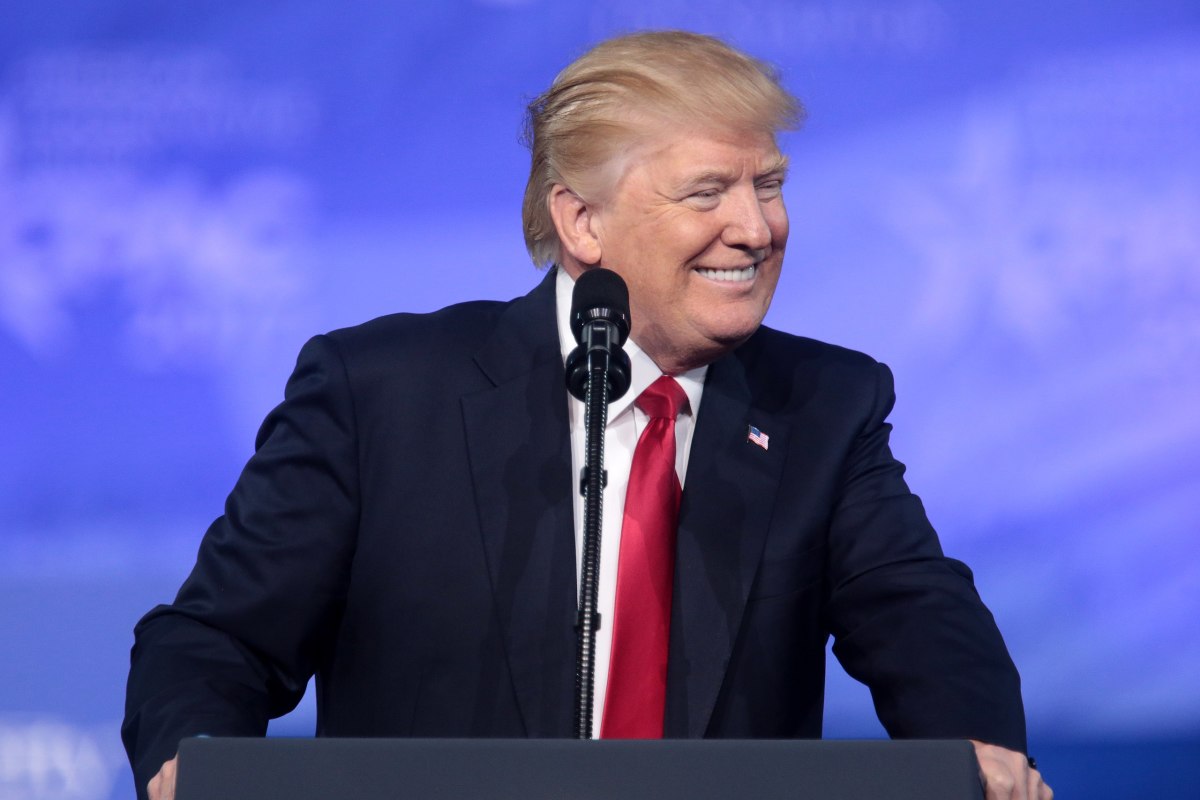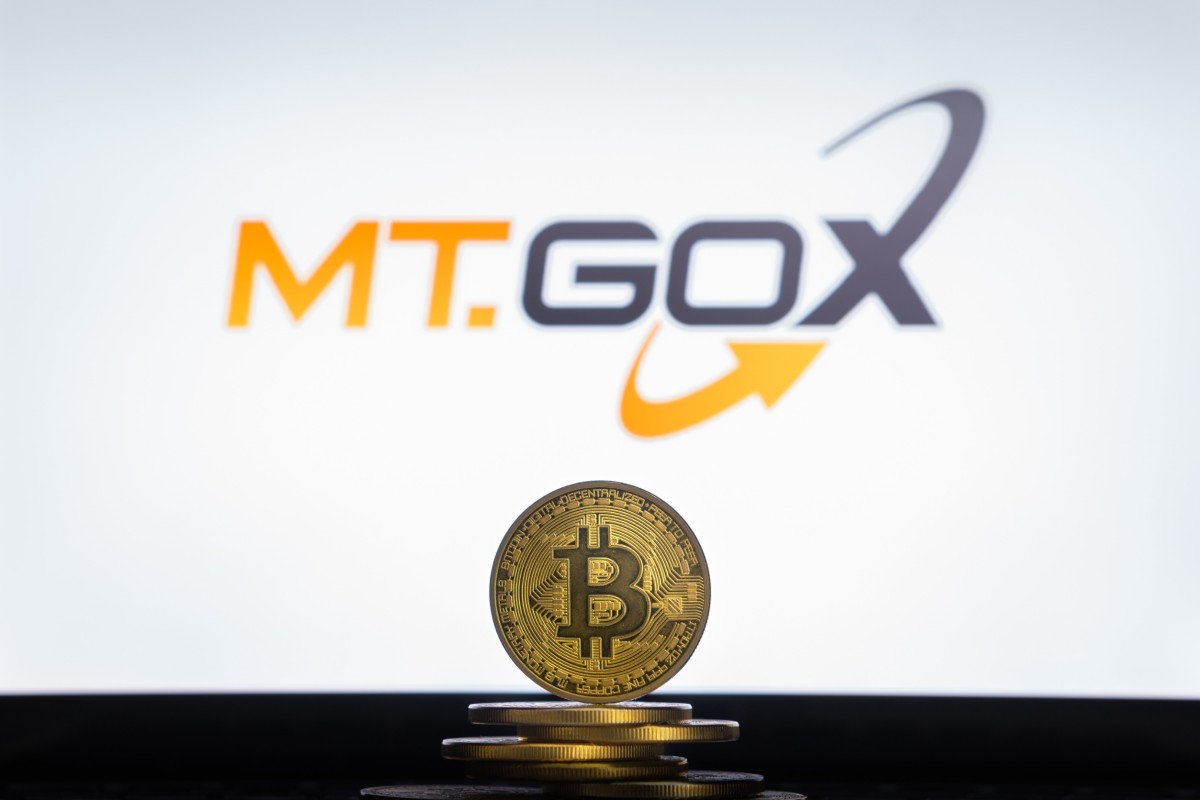Month: July 2024
Asia FX muted as dollar steadies ahead of Powell; yen remains fragile
Post Content
Republican National Committee Endorses Pro-Bitcoin Platform in Party Draft
Today, a Republican National Committee panel approved a draft of its 2024 party platform, that strongly supports Bitcoin.
On page nine, the draft explicitly states, “We will defend the right to mine Bitcoin, and ensure every American has the right to self-custody of their digital assets, and transact free from Government Surveillance and Control.”
JUST IN: 🇺🇸 Republican National Committee panel passes draft of party platform, pledging to “defend the right to mine #Bitcoin” and protect self custody. pic.twitter.com/CnH8nMOuUO
— Bitcoin Magazine (@BitcoinMagazine) July 8, 2024
Additionally, it promises to end what it calls the Democrats’ “unlawful and unAmerican Crypto crackdown” and opposes the creation of a Central Bank Digital Currency (CBDC). According to The Hill, the platform committee overwhelmingly approved the new draft and it will face a final vote on Tuesday.
This decision further marks a clear stance by the Republican party in favor of Bitcoin and cryptocurrency innovation, positioning itself against the current unwelcoming stance by the Biden Administration and Democrats.
The draft reflects the growing interest and advocacy for protecting and supporting Bitcoin within the party, aligning with broader trends of Bitcoin adoption and support among various Republican politicians. In May, Donald Trump said he “will ensure that the future of crypto and Bitcoin will be made in the USA.”
The full approved draft can be read here:
View the original article to see embedded media.
A Bitcoin Node Behind Every Blade of Grass
The debate of 2024 has been about scaling bitcoin self-custody versus ossification, with the presupposition that an ossified bitcoin protocol as it is today is imperfect – but its sound monetary properties alone are enough to change the world for the better, so changes would introduce unacceptable risk. This article will discuss why in fact NOT scaling bitcoin also puts those same monetary properties at direct risk.
Trying to give a neutral overview, the pro-change arguments are about increasing transaction throughput in a way that doesn’t burden nodes (unlike a block size increase). Various proposals exist for tactical extensions to Script, the toolkit all wallets employ to lock up bitcoin so only the owner can spend them. These extensions are new building blocks that can be used, among other things, to share UTXOs without having to trust a third party. If one UTXO can have many owners, each with a claim to part of its value but in a way that they cannot steal from the others, and that they can redeem at any time without permission, then bitcoin sovereignty can support orders of magnitude more users on chain as well as on Lightning and other as-yet-unrealized higher layers.
Meanwhile, the ossification stance is that the protocol as it exists today works and changing anything at all opens the door to potentially catastrophic unintended consequences. Digital, permissionless sound money is already revolutionary, and rather than accepting any risk at all we are better to achieve scaling needs through human institutions like bitcoin banks. Most people are intimidated by personal responsibility, and even worse there is a technical overhead to self custody, so they prefer a trusted third party anyway – even today. The belief is that market forces will keep these institutions in check organically, resembling the free banking era on the gold standard. Hal Finney famously envisioned this world in the very early days of bitcoin.
This is, to be frank, short-sighted, almost naive. Whilst bitcoin has some similar qualities to gold, it is not gold. Not to mention, free banking failed: over many years it was captured, subdued, chained up out back and finally shot dead. Regardless of which valuable assets the banking system custodies, the incentives, actors and forces are the same, and so the same outcome should be assumed. At the extreme, the capacity for 10-minute final settlement is entirely unrelated to the state’s strong incentive to profit without recourse by exerting control over banks. Worse, that time period started with gold as the incumbent: today, sound money is the outlier, and multiple generations have grown up using government paper tokens as money, unaware of their inflationary nature – but even worse, unaware even of the problems.
Bitcoin is not gold. Gold’s monetary properties are set by the laws of physics, which nobody can change. If you possess a coin, and you’ve verified it’s truly made of gold atoms, then you’re set. Bitcoin is not so simple: you possess a secret which grants the ability to spend a UTXO, if there are any in your address, and you can get the spending transaction mined, on your preferred chain. That last point is critical: your ability to select which chain you transact on is the only thing that protects Bitcoin’s monetary properties for you. Then, the only thing that gives your bitcoin a market value is that other people appreciate those same properties, and we expect their numbers to increase with time, which means the price trends upward.
Gold was captured by paper gold, and bitcoin is similarly threatened by paper bitcoin. Debasement, as with gold, is one risk. Lack of sovereignty, the basic “withdrawal request denied” scenario, is another. But far more pernicious is chain selection – by which I mean the integrity of the consensus rules such as the 21m supply, not bitcoin vs altcoin chains. Even if you hold your own keys, if someone else is deciding which chain you’re checking balances on and broadcasting transactions to, you still have no idea what monetary properties you’ve subscribed to. So if the majority of users for practical reasons are exclusively using L2 and above, never touching the chain themselves, even in the honest belief they’re using trustless solutions and not just using a custodian – then almost nobody is even aware what rules they are truly subscribed to.
For bitcoin to succeed, we need to scale sovereign usage. Not just as an egalitarian dream, not to help commerce, but in mutual defense. Every user subservient to a custodian makes no meaningful impact on preserving the monetary properties. But every user at least monitoring the chain – completely independently, out of their own self interest, and making economic decisions based on their findings – serves as another guardian of the monetary properties, which benefits everyone. If this becomes entrenched, trying to subvert the system is untenable. A Japanese Admiral is famously attributed the quote: “You cannot invade the mainland United States. There would be a rifle behind every blade of grass”, and though it is likely apocryphal, the sentiment is undeniable – and makes particular sense in bitcoin.
To make this less abstract, an analogy using gold: you knew that paper gold has serious debasement risk, so you decided to transact only in physical, hallmarked gold. You used some coins for transacting, and buried the bars in the garden. You even checked a handful of each for purity, by having them chemically analysed by a professional. Buried for safekeeping, it might be years before they’re ever audited again. What you never realized is that during the analysis, the professional shaved off 1%, replaced the missing weight with tungsten, and kept the shavings for himself. Even worse, the hallmarker does the same scam before him, setting aside some “good” units for clients they know will audit most thoroughly. This might not even be their own choice, but forced upon them by the state.
Now realize that, if almost no gold holder does their own verification personally – because it is complex and costly – then the incentive is for ALL authenticators to do this, since each profits individually and the shared racket benefits them all collectively. Even if one breaks rank and gives honest reports, his business will expand based on that demonstration of trustworthiness, which over time puts him in even more of a position to abuse it for profit. You are dependent on the moral integrity of someone who directly benefits from screwing you, knows you probably won’t notice, and are powerless to do anything about it even if you did. Worth noting: this also describes world politics.
Even if you take every reasonable step, and only use hallmarked gold and reputable paper gold issuers, you are still not actually verifying the gold is authentic. Worse, the average person operates only with bank notes instead of gold. What is the quality of the bank’s gold reserves? Do they even have any? How many people care? Without direct contact with and selfish verification of the valuable asset, the market becomes dependent on third parties with their own incentives, and individuals have no idea what they hold – what rules they are truly subscribed to. The market naturally detaches from the value-providing base layer.
Imagine if you could buy a magic wallet that instantly verified every molecule of gold you put into it. You’re checking the validity of each and every transaction, as it happens, and can immediately respond if something is amiss. You’re in full control of this tool, which is totally passive, meaning it can only serve your interests. The wallet manufacturer has no incentive to make it lie to you, since they can’t gain anything by doing so. Their personal profit can only come from providing the best possible tool for protecting their customers’ interests.
A bitcoin node is that magic wallet. Paper gold users are like those who trust their bitcoin to a custodian, and they hopefully understand the risk. Paper IOUs can’t be validated by the node, so it’s irrelevant whether they have one or not. The hallmarked gold transactor with no magic wallet thinks he’s protecting himself, yet being swindled all the same – that’s a bitcoin user who holds their own keys, but does not have their own node. What seemed like independent entities that should be held in check by the market, are actually united by incentives into an “us versus them” alliance, in an entirely predictable nightmare scenario of systematic abuse.
Stretching the analogy to breaking point, what about when verification equipment is too expensive for the individual? In this case we’re thinking ahead to when block space is extremely costly, rather than the node itself. We’ve already established that outsourcing verification altogether just incentivizes systematic exploitation. The only solution without trust is cooperation: multiple parties pooling resources to buy verification as a group. In bitcoin, this is scaling via UTXO sharing: we’re still offloading some of the burden, but maintaining sovereign control of our funds, in so doing having an active interest in maintaining the consensus rules, and thus contributing to defending them for everyone.
If we work to technologically facilitate extremely broad access to and interest in sovereignty, via keys and nodes, we can entrench a broad, distributed collection of opposing interests that makes subverting the monetary properties untenable. If we fail to technologically provide for highly distributed, direct interests in the happenings on L1, then most people will inevitably lose access to those monetary properties, as they did with gold. Scaling isn’t about increasing capacity to help commerce: it’s actually increasing defense.
This is a guest post by Owen Kemeys. Opinions expressed are entirely their own and do not necessarily reflect those of BTC Inc or Bitcoin Magazine.
The German Government Is Selling More Bitcoin – $28 Million Moves to Exchanges
The German government continued shifting portions of its massive Bitcoin trove to exchanges on Monday, transferring over $56 million worth across multiple transactions.
According to blockchain data, addresses linked to the German government moved a total of 500 BTC to Bitstamp and Coinbase (250 BTC each), worth about $27.9 million, at 14:48 UTC+8 today, and transferred 500 BTC to an unmarked address.
JUST IN: 🇩🇪 German Government sends another 1,000 #Bitcoin worth $56 million to exchanges 👀 pic.twitter.com/zsxg3q2tkV
— Bitcoin Magazine (@BitcoinMagazine) July 8, 2024
Germany originally seized nearly 50,000 Bitcoin back in 2013 from the operators of the now-defunct piracy website Movie2K. The stash is estimated to be worth around $2.3 billion at today’s prices.
This comes after the government shifted around $390 million in Bitcoin to various platforms since mid-June.
The steady flow of transfers to exchanges signals Germany’s potential intentions to liquidate parts of its reserves. While reasons remain uncertain, the sales have fueled volatility in Bitcoin’s price, which dipped below $55,000 last week.
However, the amounts shifted so far equate to a relatively small portion of Germany’s massive holdings. After the latest transactions, the government still possesses around 40,000 bitcoins valued at nearly $2.2 billion.
Nonetheless, the remaining reserves represent a significant share of daily Bitcoin trading volumes. As such, experts caution the threat of further turbulence lingers as long as Germany stays active in reducing exposure.
The liquidations come just as long-awaited creditor payouts from Mt. Gox’s 2014 collapse appear set to begin. This timing might compound selling pressure on Bitcoin amid an already bearish macro environment.
‘Asia’s MicroStrategy’ Metaplanet Buys Another ¥400 Million Worth of Bitcoin
Metaplanet, a Japanese public company that started as a hotel operator, announced it purchased another ¥400 million ($2.5 million) in Bitcoin. This continues the firm’s strategy of adopting Bitcoin as a treasury reserve asset.
JUST IN: 🇯🇵 Japanese public company Metaplanet buys another ¥400 million worth of #Bitcoin pic.twitter.com/mT4cPKEcSP
— Bitcoin Magazine (@BitcoinMagazine) July 8, 2024
Despite the slumping Bitcoin market, Metaplanet revealed it acquired 42.466 more Bitcoin on July 8th. This brings its total holdings to around 203 Bitcoin purchased for ¥2.05 billion ($12.7 million) — an average price of ¥10 million ($62,000) per coin.
Metaplanet is mimicking MicroStrategy, the U.S. software firm’s Bitcoin accumulation strategy. Since 2020, MicroStrategy has amassed over 200,000 Bitcoin, now worth $15 billion, making it the largest corporate holder.
Its stock price has often mirrored Bitcoin’s fluctuations, with investors using it as a proxy for Bitcoin exposure.
The Japanese company said buying Bitcoin helps minimize exposure to the weakening yen amid prolonged low interest rates. This approach also provides domestic investors Bitcoin access through a public firm with preferable tax treatment.
The yen has tumbled dramatically in 2022, dropping to lows against the dollar and euro not seen in decades. The Bank of Japan has maintained a loose monetary policy in contrast to global tightening.
While amounts remain small so far, its continued purchases show commitment even amid market turmoil. As “Asia’s MicroStrategy,” Metaplanet is positioning itself to ride future waves in Bitcoin adoption.
Disclaimer: Bitcoin Magazine is wholly owned by BTC Inc., which operates UTXO Management, a regulated capital allocator focused on the digital assets industry. UTXO invests in a variety of Bitcoin businesses, and maintains significant holdings in digital assets.
Dollar stabilizes ahead of key inflation data; euro gains
Post Content
Asia FX muted as dollar weakens; euro steady as leftists lead French elections
Post Content
The Federal Reserve, Custodia Bank, and the Battle over Sovereignty
Introduction
As it moves into the active appeal stage at the Tenth Circuit, the ongoing legal battle between Custodia Bank and the Federal Reserve has garnered significant attention, especially given the involvement of various amicus briefs. A total of seven briefs were filed on July 3rd, the last day for supporting, or neutral, briefs to be filed.1 This case has attracted significant interest from top-flight appellate attorneys, drawing three former Solicitors General, two representing amici and Ian Gershengorn who represents Custodia itself.
In Federal appellate practice, an amicus curiae (“friend of the court”) brief allows non-parties to provide the court with additional perspectives, expertise, or insights. These briefs, submitted by states, individuals, organizations, or entities with a strong interest in the case, aim to highlight broader implications, advocate for legal principles, and ensure the court understands potential impacts beyond just the parties to the case.
Among the briefs filed in the Custodia case, all of which are powerful and explore different aspects of the case, the one submitted by former Solicitor General Paul Clement stands out due to its comprehensive argument on the constitutionality of the Federal Reserve’s actions. This article presents a high level summary and analysis of each of these briefs, examining how each addresses the core issues at stake, starting with a more detailed focus on Clement’s brief for The Digital Chamber.
The Clement Brief: A Deep Dive into Constitutional Arguments
Paul Clement, who served as the Solicitor General under President George W. Bush, brings a brief on behalf of The Digital Chamber and The Global Blockchain Business Council. It is worth noting that Mr. Clement prepared this brief while freshly off his Supreme Court victory taking out the Chevron doctrine in Loper Bright Enterprises v. Raimondo.
The Appointments Clause and the Federal Reserve’s Authority
The Clement amicus brief in support of Custodia lays out a robust constitutional argument, primarily focusing on the Appointments Clause. This clause, found in Article II, Section 2 of the U.S. Constitution, empowers the President to appoint officers of the United States with the advice and consent of the Senate. Clement argues that the Federal Reserve, in its current structure, violates this clause.
The upshot is that Federal Reserve Bank presidents are not appointed by the President with the advice and consent of the Senate and removable by the President (as principal officers must be), nor are they appointed by the President, the courts of law, or the head of an executive department and removable by the President or a principal officer (as inferior officers must be).2
Clement asserts that the Federal Reserve’s board members, who wield substantial regulatory power, are not properly appointed under the Appointments Clause. This lack of adherence to constitutional procedures undermines the legitimacy of their actions, specifically including the denial of Custodia’s master account application. By bypassing the constitutionally mandated process, the Federal Reserve operates with a degree of autonomy that the framers of the constitution did not intend.
The brief underscores the idea that significant executive powers vested in individuals who are not appointed in accordance with the Appointments Clause are fundamentally unconstitutional. This argument is particularly compelling with respect to Custodia because it directly challenges the very structure and legitimacy of the Federal Reserve’s decision-making process, bypassing the argument of whether or not granting a Master Account is discretionary.
The Role of Judicial Review
Another significant aspect of Clement’s brief is the emphasis on judicial review. Clement argues that the actions of the Federal Reserve should be subject to strict judicial scrutiny to ensure they comply with constitutional and statutory mandates. Noting that the District Court’s opinion would render the Federal Reserve’s actions unreviewable, he points out that the judiciary has a crucial role in curbing administrative overreach, aligning with the recent Supreme Court decision overturning Chevron deference.
The Chevron doctrine, established in Chevron U.S.A., Inc. v. Natural Resources Defense Council, Inc., 467 U.S. 837 (1984), required courts to defer to agency interpretations of ambiguous statutes. Clement’s brief references the Supreme Court’s recent move to overturn this doctrine, emphasizing that courts must independently interpret statutes rather than deferring to agencies. This shift reinforces the need for judicial oversight of the Federal Reserve’s actions, ensuring they do not exceed their statutory and constitutional authority.
Clement underscores the necessity of having an independent judiciary that can review and, if necessary, overturn decisions made by federal agencies that overstep their boundaries. Their protestations aside, the Federal Reserve Board is not, nor should it be, exempt from this oversight. This argument is crucial because it reinforces the checks and balances designed to prevent any single branch of government from exercising unchecked power.
Implications for the Dual Banking System
Clement’s arguments extend beyond constitutional principles to the practical implications for the dual banking system. He argues that the Federal Reserve’s discretionary power to deny master accounts to state-chartered institutions like Custodia undermines the balance between federal and state regulatory systems. This imbalance threatens the innovation and diversity that the dual banking system aims to promote.
Clement provides a historical perspective, highlighting the origins of the dual banking system going back to the Civil War, and its role in fostering financial innovation. By granting undue power to the Federal Reserve, the current system deviates from this historical precedent, centralizing authority in a way that stifles competition and state-level regulatory experimentation.
The dual banking system was designed to create a healthy balance between federal oversight and state innovation. Clement argues that the Federal Reserve’s current practices disrupt this balance, leading to a more centralized and less dynamic banking system. This disruption not only affects state sovereignty but also limits the potential for financial innovation and diversity.
Constitutional Grounds for Challenging the Federal Reserve
Clement’s brief builds a case on constitutional grounds, arguing that the Federal Reserve’s actions violate several key principles enshrined in the U.S. Constitution. These include the Appointments Clause, the separation of powers, and the necessity for judicial review to prevent administrative overreach.
Clement emphasizes that the separation of powers is a fundamental principle that ensures no single branch of government can wield unchecked power. By allowing unelected officials at the Federal Reserve to make significant regulatory decisions without proper oversight, this principle is compromised.
The brief points out that the separation of powers was designed to prevent the concentration of power and to protect individual liberties by ensuring that legislative, executive, and judicial functions remain distinct. Clement argues that the Federal Reserve’s actions blur these boundaries, granting quasi-legislative and quasi-judicial powers to an executive agency.
Clement’s arguments have broader implications for how constitutional principles are applied in the context of modern administrative agencies. He suggests that the issues raised in Custodia’s case are not isolated but indicative of a larger trend where federal agencies increasingly operate with autonomy that challenges constitutional limits.
By bringing these arguments to the forefront, Clement’s brief builds on his victory against Chevron in Loper Bright and invites the courts to again reconsider the extent of administrative agency powers and reinforce the constitutional boundaries that must govern their actions. This approach not only addresses the specific issues faced by Custodia Bank, but also aims to further cement precedent for future cases involving federal regulatory agencies.
But even setting that history aside, the critical importance of master accounts to state-chartered banks and the serious constitutional questions that the decision below raises make this case a paradigm example of the circumstances in which constitutional-avoidance principles should control. Allowing the decision below to stand will enable politically unaccountable federal officials to exercise broad discretion to place massive and unwarranted obstacles in the path of state-chartered financial institutions, upending the traditional balance between federal and state banking regulators and affording Federal Reserve Bank presidents expansive power without meaningful political or judicial oversight. Whether as a matter of federalism, the Appointments Clause, or both, the judgment below cannot stand.3
Verrilli’s Blockchain Association Brief: Impact on Innovation
The Blockchain Association’s amicus brief was filed by Donald Verrilli, who served as President Obama’s Solicitor General. It brings a tech and innovation heavy perspective, championing the cause of financial innovation and digital assets.
Unfortunately for Custodia, its application was caught in the current of federal regulators’ aggressive, coordinated efforts to “debank” the digital asset industry. Beginning in 2021, federal regulators began rolling back prior guidance that had permitted depository institutions to provide digital asset services, and imposing new restrictions.4
Emphasizing Innovation in Financial Services
Verrilli’s brief centers on the critical role of innovation in the financial sector. It contends that the Federal Reserve’s denial of Custodia’s master account application stifles technological advancements and limits the potential for financial inclusion. The brief underscores that innovation is not just a buzzword but a necessary evolution for a dynamic financial ecosystem.
Digital Assets and Fintech
The brief highlights the burgeoning field of digital assets and fintech, emphasizing that these assets are now deeply embedded in our financial system, and institutions like Custodia are at the forefront of this revolution. It argues that by denying Custodia access to Federal Reserve services, the Federal Reserve is intentionally hampering the growth of these cutting-edge financial technologies. The brief advocates for an inclusive financial system that supports digital asset integration, ultimately benefiting consumers and the broader economy.
Non-Discriminatory Access to Federal Services
A cornerstone of the brief is the argument for non-discriminatory access to Federal Reserve services. It posits that all depository institutions, regardless of their focus on digital assets, should have equal access to the essential services provided by the Federal Reserve. This access is crucial for fostering a level playing field where innovation can flourish without regulatory bias.
Despite the digital asset industry’s pressing need for banking services, federal regulators have waged a concerted, coordinated campaign to debank the industry. That effort is central to a complaint recently filed against FDIC by an affiliate of Coinbase, the United States’ largest, and only publicly-traded, digital asset trading platform, and is widely acknowledged in the financial sector.5
Wyoming Attorney General’s Brief: Focus on Wyoming’s Regulatory Framework
Wyoming’s Attorney General steps into the ring with a staunch defense of the state’s regulatory prowess. This brief is a clarion call for recognizing and respecting the meticulous framework Wyoming has established for Special Purpose Depository Institutions (SPDIs).
Championing State Sovereignty
The Attorney General’s brief is grounded in the defense of state sovereignty. It argues that the Federal Reserve’s denial of Custodia’s master account application undermines the authority and innovation fostered by Wyoming’s robust regulatory framework. The brief emphasizes that states have the right to regulate financial institutions within their borders and that this sovereignty is crucial for financial innovation.
Wyoming’s Regulatory Framework
The brief examines the specifics of Wyoming’s regulations for SPDIs, highlighting their comprehensive nature. It argues that Wyoming’s framework provides robust oversight and consumer protections that should be recognized and respected by federal authorities. By denying Custodia’s application, the Wyoming Attorney General accuses the Federal Reserve of dismissing the effectiveness of state-level regulation.
A disregard of Wyoming’s right to charter depository institutions in the two tier banking system appears to be the motivation for this disparate treatment of Wyoming-chartered banks. Indeed, the Appellees appear to have arbitrarily created a distinction between federally regulated and non-federally regulated banks.6
Wyoming has positioned itself as a leader in financial innovation, particularly with its support for SPDIs. The brief argues that the Federal Reserve’s actions stifle this innovation, hindering the development of new financial products and services that could benefit consumers and the economy. It underscores the importance of allowing states to experiment with and implement innovative regulatory approaches.
The Importance of Historical Consistency
The Attorney General’s brief criticizes the Federal Reserve for deviating from its historical practice of granting master accounts to a wide range of depository institutions. It argues that such inconsistency undermines the predictability and stability of the financial system. By maintaining historical practices, the Federal Reserve can ensure a stable and predictable regulatory environment.
By denying Custodia’s application, the Federal Reserve has violated a longstanding principle of equality between federally-chartered and state-chartered banks. The brief argues that such overreach not only disrupts state-led innovation but also sets a dangerous precedent for the centralization of financial regulatory power.
This has created a Kafkaesque situation where a SPDI Bank is denied a master account because it is not federally regulated, even while it is also denied federal regulation. This situation frustrates Wyoming’s regulatory scheme and its right to charter state banks.7
AFP Brief: Advocating for Federalism and Non-Discriminatory Access
The amicus brief from the Americans For Prosperity (AFP) Foundation emerges as a powerful advocate for non-discriminatory access and regulatory accountability. This brief is wide-ranging, and covers many areas also touched on by other amici, such as Federalism, protecting innovation, and state sovereignty. It emphasizes the critical need for the Federal Reserve to operate within clear statutory mandates, ensuring fairness and equality in the financial system.
Non-Discriminatory Access: A Legal Mandate
The AFP brief argues that the Federal Reserve’s denial of Custodia’s master account application blatantly violates 12 U.S.C. § 248a, which mandates equal access to Federal Reserve services for all depository institutions. By refusing Custodia’s application, the Federal Reserve is accused of engaging in discriminatory practices that undermine the statute’s intent. AFP underscores that statutory mandates must be followed to maintain fairness and integrity within the financial system.
For the dual banking system to function as Congress intended, State-chartered banks must be able to access the Federal Reserve’s services—and receive a master account—as a matter of right and on equal terms with federally chartered banks.8
Upholding the Administrative Procedure Act (APA)
A significant thrust of the AFP brief is its focus on the Administrative Procedure Act (APA). It argues that the Federal Reserve’s actions are arbitrary and capricious, thus violating the APA. The brief highlights the importance of the APA in ensuring that federal agencies operate transparently and within the bounds of their authority. By failing to adhere to these principles, the Federal Reserve’s decision-making process is called into question.
The Necessity of Judicial Review
AFP strongly advocates for robust judicial review to keep federal agencies in check. The brief posits that judicial oversight is essential to prevent federal overreach and ensure that regulatory bodies like the Federal Reserve adhere strictly to statutory and procedural requirements. This stance aligns with the recent judicial trend towards curbing administrative overreach, ensuring that agencies do not operate beyond their legally defined limits.
Ensuring Accountability and Transparency
The AFP brief emphasizes the need for transparency and accountability in federal regulatory actions. It argues that the Federal Reserve must be held accountable for its decisions, which should be subject to public scrutiny and judicial review. This approach ensures that regulatory practices are not only fair and equitable but also visible and accountable to the public and other stakeholders.
Congressional Brief: Addressing Statutory Overreach
This amicus brief was submitted by members of the United States Senate Banking Committee and House Financial Services Committee, specifically Senators Cynthia Lummis and Steve Daines, and Representative Warren Davidson, and stands out with a sharp focus on statutory overreach and the need for regulatory consistency. This brief argues that the Federal Reserve’s actions threaten the balance and predictability necessary for a stable financial system.
Statutory Overreach and Legal Boundaries
The Congressional brief argues that the Federal Reserve has overstepped its statutory authority by denying Custodia’s master account application. It contends that the denial not only violates the clear mandates of 12 U.S.C. § 248a but also represents a broader trend of federal agencies exceeding their legal boundaries. The brief meticulously outlines how the Federal Reserve’s actions contradict the statute’s intent to ensure non-discriminatory access to Federal Reserve services for all depository institutions.
Impact on Financial Stability and Innovation
It also addresses the broader implications of the Federal Reserve’s actions on financial stability and innovation. By denying access to state-chartered institutions like Custodia, the Federal Reserve stifles competition and innovation within the financial sector. The brief argues that maintaining a consistent and predictable regulatory environment is crucial for fostering innovation and ensuring the stability of the financial system.
Despite original concerns by some that the MCA would destroy our dual banking system, application of the law over the past 44 years has proven that those fears were unfounded because the dual banking system remains alive and well today, as Congress intended. Should the District Court’s decision be affirmed, however, it would serve as a quasi-legislative paradigm shift that would subvert the states’ role within our dual-banking system.9
Wyoming Secretary of State Brief: Defending State Sovereignty
The amicus brief from the Wyoming Secretary of State10 takes a direct approach, arguing that the District Court’s opinion opens the door for the Federal Reserve to erode state sovereignty and dismantle the dual banking system without Congressional approval.
The Backbone of State Sovereignty
Wyoming’s Secretary of State shines a spotlight on the Federal Reserve’s encroachment upon state regulatory authority. By denying Custodia’s master account application, the Federal Reserve is not only undermining Wyoming’s innovative financial framework but also violating Federal statutes designed to balance Federal action with state sovereignty.
Interpretation of 12 U.S.C. § 248a
At the heart of the brief is the interpretation of 12 U.S.C. § 248a, a statute mandating that all Federal Reserve services be available to depository institutions, which necessarily includes those chartered by states. The Wyoming Secretary of State argues that the Federal Reserve’s attempt to use a discretionary standard to deny Custodia’s application directly contravenes the plain language and intent of this statute.
Protecting the Dual Banking System
The brief then discusses the dual banking system’s significance, emphasizing its role in promoting financial innovation and diversity. By encroaching on state authority, the Federal Reserve threatens the delicate balance that allows both federal and state regulators to coexist and thrive. This balance is essential for fostering a robust financial system where innovation can flourish without undue federal interference.
Empowering Financial Innovation
Wyoming’s pioneering approach to business and financial regulation, as the birthplace of Limited Liability Companies (LLCs) and now Special Purpose Depository Institutions (SPDIs), is highlighted as a model of state-led innovation. The brief argues that the Federal Reserve’s actions stifle this innovation, limiting the potential for new financial products and services that could benefit consumers and the broader economy.
Can the Federal Reserve say with a straight face that a 772-page bank examination manual for SPDIs is really a “race to the bottom,” especially while the Federal Reserve itself allows such activities to take place in other banks today without adopting any standards for banks at all?11
Toomey Brief: Transparency and Accountability
Former Senator Pat Toomey’s amicus brief takes a firm stand on the necessity of transparency and legislative oversight. Unlike the other amici, Senator Toomey has submitted a neutral brief, and does not explicitly support Custodia. He does, however, highlight the urgent need for clear guidelines and public accountability in the exercise of the Federal Reserve’s powers.
As explained above, the 2023 NDAA Amendment does not—and was not intended to—grant or opine on any substantive rights of the Board, or of the Reserve Banks. The Amendment was drafted in response to the Board’s, and Kansas City Fed’s, refusal to address repeated Senate inquiries into the handling of Reserve Trust’s master account application.12
Advocating for Transparency and Accountability
Senator Toomey’s brief underscores the critical importance of transparency in federal regulatory actions. It argues that the Federal Reserve must operate with clear, publicly accessible guidelines to ensure that its decisions are fair, consistent, and open to scrutiny. Noting that the Federal Reserve has a historical problem with transparency, it emphasizes that without more transparency, regulatory actions can become arbitrary, undermining public trust and the integrity of the financial system.
The Senate Banking Committee witnessed the lack of transparency in the master account approval process first-hand in January 2022 during the Senate vetting and confirmation process for a presidential appointee nominated to serve as vice-chair for banking supervision at the Board.13
Legislative Context and Recent Amendments
Toomey’s brief places significant weight on the legislative framework governing the Federal Reserve’s actions. It discusses recent amendments and legislative changes, stressing that any major regulatory decisions must be explicitly authorized by Congress. This focus aligns with recent judicial moves to curb administrative overreach, reinforcing the need for regulatory bodies to operate within clearly defined legislative boundaries.
The brief then goes into the legislative intent behind key statutes, arguing that the Federal Reserve’s nontransparent denial of Custodia’s master account application deviates from the principles those laws were passed to specifically address. Toomey asserts that the Federal Reserve must respect the boundaries set by Congress, ensuring that its actions reflect legislative intent rather than unchecked administrative discretion.
Promoting Legislative Oversight
Senator Toomey’s brief argues for enhanced legislative oversight of federal regulatory bodies. By reinforcing the role of Congress in setting and overseeing regulatory policies, the brief seeks to ensure that federal agencies remain accountable to the public and their elected representatives. This approach is intended to safeguard against arbitrary regulatory decisions and promote a more accountable regulatory environment.
Final Thoughts
The various amicus briefs submitted in Custodia’s appeal present myriad arguments against the Federal Reserve’s actions, ranging from constitutional arguments to statutory interpretation and the broader implications for financial innovation. The central theme, however, is that an unrestricted, unreviewable Federal Reserve system is neither supported by the Constitution, nor a healthy and desirable outcome for our country. As the legal battle unfolds, the arguments presented in these briefs will play a crucial role in shaping the future of financial regulation and state sovereignty in the United States.
1 Amicus briefs supporting the Federal Reserve may be filed up to seven days after their reply brief is filed.
2 Digital Chamber Brief, page 17.
3 Digital Chamber Brief, page 25.
4 Blockchain Association Brief, page 4.
5 Blockchain Association Brief, page 23 (internal citations omitted).
6 Wyoming Attorney General Brief, page 8.
7 Wyoming Attorney General Brief, page 8.
8 AFP Brief, page 11.
9 Congressional Brief, page 26 (internal citations omitted).
10 Full disclosure: the author of this article is also the author of the Wyoming Secretary of State’s amicus brief.
11 Wyoming Secretary of State Brief, page 15 (internal citations omitted, emphasis in original).
12 Toomey Brief, page 22.
13 Toomey Brief, page 6.
This is a guest post by Colin Crossman. Opinions expressed are entirely their own and do not necessarily reflect those of BTC Inc or Bitcoin Magazine.
Bitcoin Price Falls as Mt Gox Starts Repayments
The Bitcoin price plunged this week, sinking below $55,000 for the first time since February as the now-defunct Mt Gox exchange began distributing billions in owed funds.
Mt Gox announced it has started repaying creditors, ending years of waiting stemming from its 2014 collapse. The Japan-based exchange will distribute approximately $9 billion worth of Bitcoin, Bitcoin cash, and fiat currency.
The news added heavy selling pressure on Bitcoin, which fell over 6% on Friday to trade near $54,000. The broader Bitcoin and crypto market shed over $170 billion in 24 hours amid the declines.
On Thursday evening, Mt Gox moved around 47,000 Bitcoin worth nearly $2.7 billion from cold storage wallets to a separate address. While intentions remain uncertain, the transfer fueled concerns creditors may sell portions of recovered coins.
The payouts come after protracted bankruptcy proceedings for Mt Gox, which suffered a massive hack in 2014 that resulted in 850,000 Bitcoin being lost. It was the largest crypto exchange at the time, handling 70% of all Bitcoin transactions.
The repayment of creditors marks a major step toward resolving Mt Gox’s decade-long insolvency case. However, the influx of previously lost coins threatens to shift supply and demand dynamics.
Some analysts estimate selling pressure from payouts could push Bitcoin’s price as low as $50,000 in the near term. Ongoing transfers from the German government have also weighed on the market.
However, others argue the amounts equate to a small fraction of daily Bitcoin trading volumes. They say most creditors are long-term investors unlikely to dump holdings en masse, limiting impacts.
Nonetheless, analysts widely expect significant volatility ahead between Mt Gox distributions and the start of German government sales in July.
Dollar slips ahead of payrolls; sterling gains post election
Post Content








